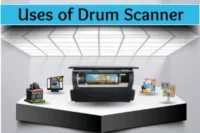Types of Computer Mouse: A Super Easy Guide for Beginners
Published: 1 Jul 2025
A computer mouse is a small input device you move with your hand to control the pointer on your screen. It helps you click, select, and move things quickly.
Today, there are many types of mice, each built for different tasks, such as gaming, travel, or design. This guide will help you understand each type clearly, allowing you to select the one that best suits your needs.
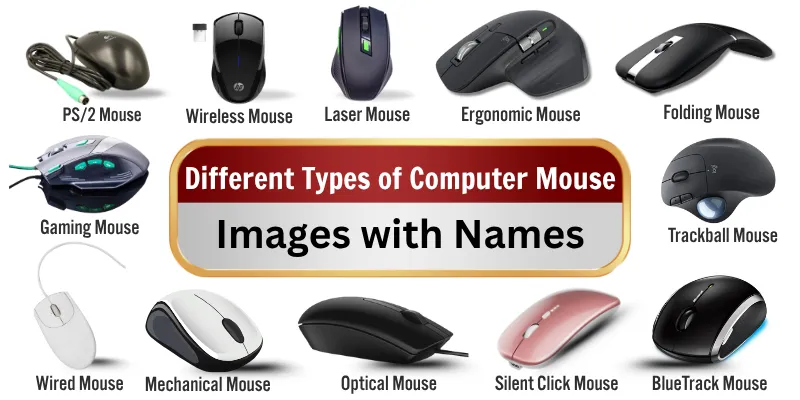
Types of Computer Mouse
Not all computer mice work the same way. There are many types of computer mice, each designed for a specific task or user need.
Here is is the list of different types of computer mouse:
- Mechanical Mouse
- Optical Mouse
- Laser Mouse
- BlueTrack Mouse
- Wired Mouse
- Wireless Mouse
- Bluetooth Mouse
- USB Mouse
- PS/2 Mouse
- Rechargeable Mouse
- Folding Mouse
- Silent Click Mouse
- Smart Mouse
- Presentation Mouse
- Gaming Mouse
- Ergonomic Mouse
- Vertical Mouse
- Trackball Mouse
- Stylus Mouse
- Finger Mouse
- Ring Mouse
- 3D Mouse
- Two-Button Mouse
- Multi-Button Mouse
- Travel Mouse
Let’s go through the above-mentioned mouse types with images in simple terms.
Mechanical Mouse
A mechanical mouse uses a rubber ball underneath to detect movement. It rolls on a flat surface and controls the cursor as the ball spins. These older computer mouse types were common in desktops before the 2000s but are now rarely used.
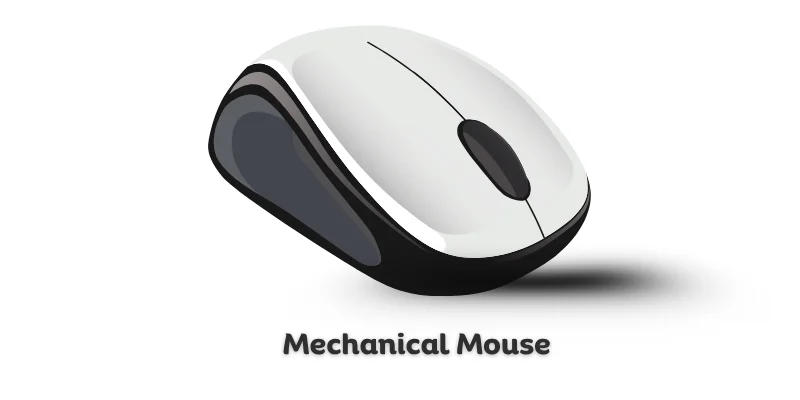
Optical Mouse
An optical mouse uses LED light to track your hand’s movement. It works well on most solid surfaces, such as desks and mouse pads. This is one of the most common mouse types for computers today and is ideal for both home and office use.
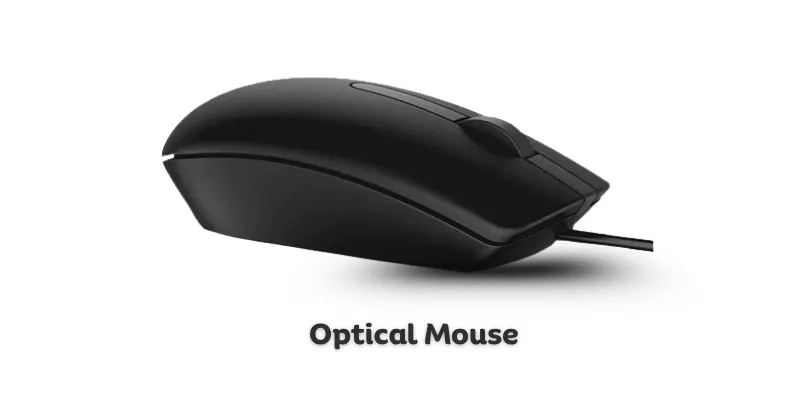
Laser Mouse
Laser mice use a laser beam instead of LED for more accurate tracking. They can work on shiny or glass surfaces where optical mice may fail. These kinds of computer mice are a good choice for users who require high precision, such as designers.
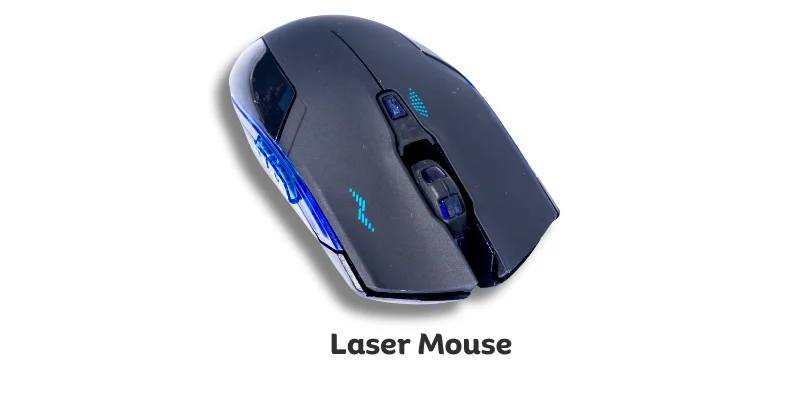
BlueTrack Mouse
The BlueTrack mouse, made by Microsoft, combines optical and laser technology. It works on a variety of surfaces, including carpet and rough wood. It’s a wise choice for frequent travellers who use their laptops on the go.
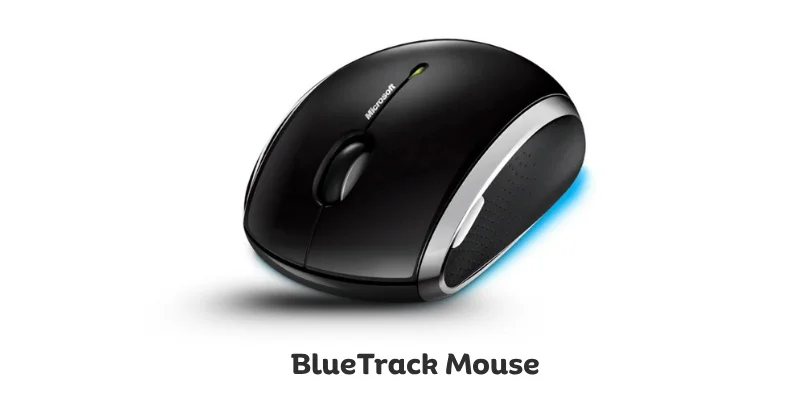
Wired Mouse
A wired mouse connects to your computer using a USB or PS/2 port. It doesn’t need batteries and usually has low input lag. These computer mouse types are commonly used in gaming setups or office desktops where a stable connection is crucial.
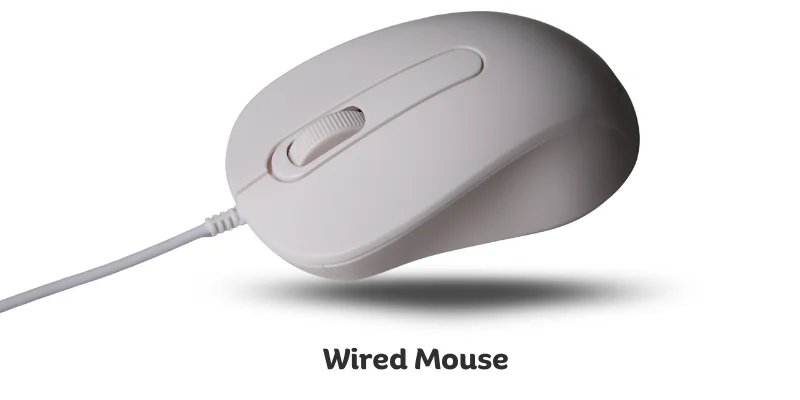
Wireless Mouse
A wireless mouse works using radio frequency or Bluetooth. It removes cable clutter, giving you more freedom to move. This type of mouse is popular with laptop users who want a cleaner desk setup.
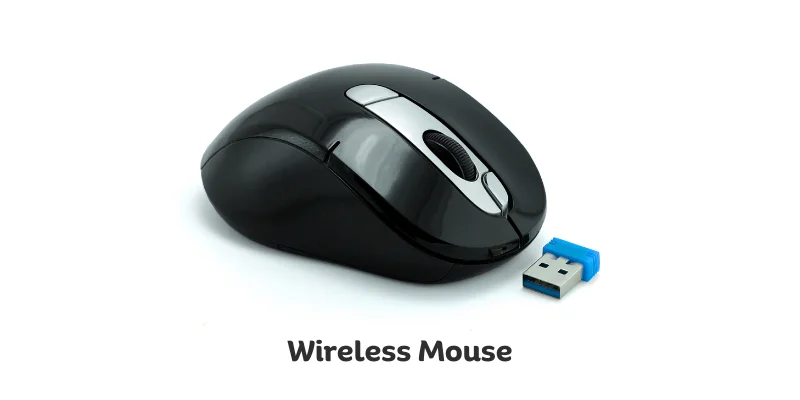
Bluetooth Mouse
Bluetooth mice connect directly to devices with built-in Bluetooth, like most laptops and tablets. They don’t need a USB dongle, which frees up ports. These are great for students or people who often switch between devices.
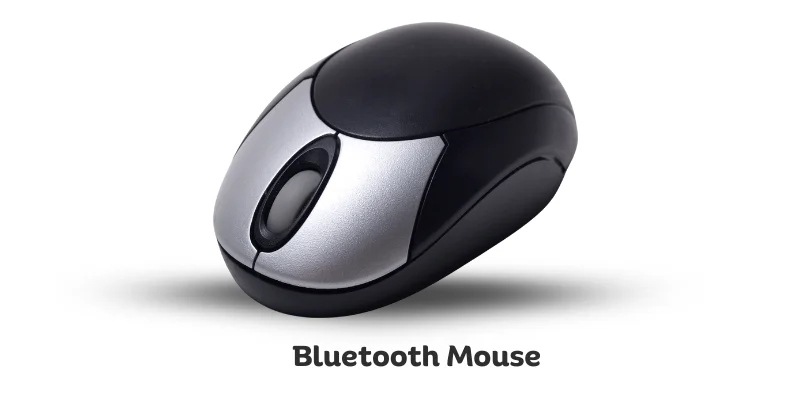
USB Mouse
A USB mouse is the most common type of wired mouse found in homes, schools, and offices. You just plug it in, and it works—no setup needed. It’s a reliable plug-and-play mouse for everyday tasks.
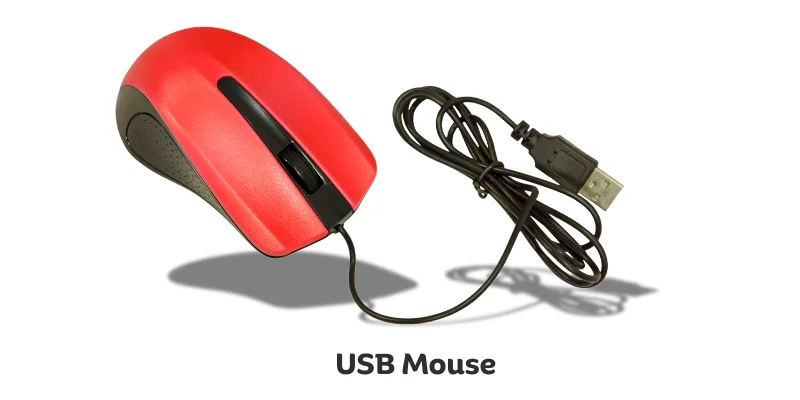
PS/2 Mouse
The PS/2 mouse uses a round plug and was common before the USB standard was established. You’ll still find it on some older desktop computers. While rare now, it’s useful if you’re working on legacy systems or older machines.
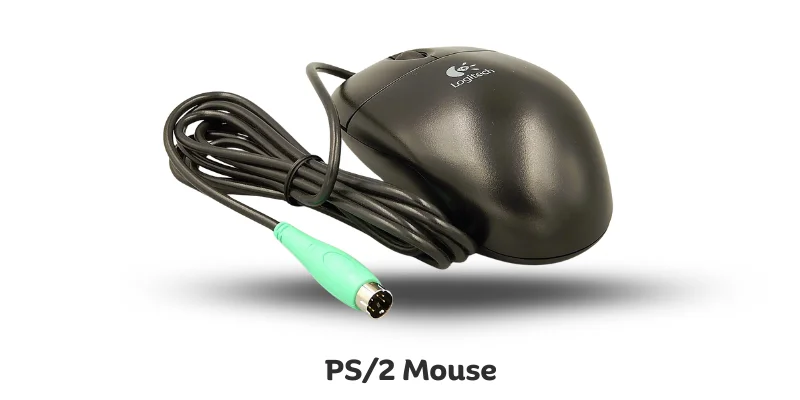
Rechargeable Mouse
A rechargeable mouse comes with a built-in battery that charges via a USB cable. It’s more eco-friendly than using disposable batteries. Many people prefer this mouse type to avoid the need for frequent battery replacements.

Folding Mouse
Folding mice are made for travel. You can bend or fold them flat to save space in your bag. This portable mouse is perfect for students or digital nomads who work on the go.
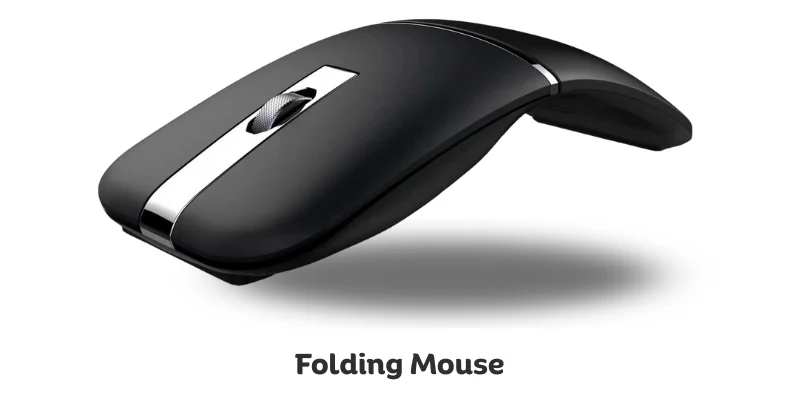
Silent Click Mouse
Silent click mice types are designed to reduce clicking noise. They’re ideal for quiet spaces, such as libraries, shared offices, or classrooms. This low-noise mouse helps you work without disturbing those around you.
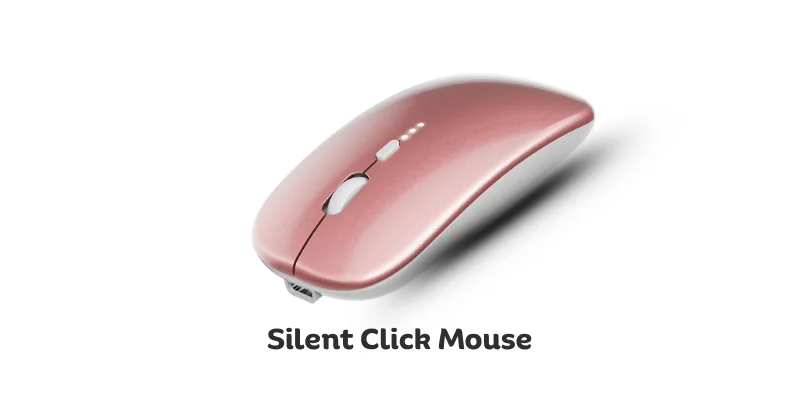
Smart Mouse
A smart mouse offers touch gestures, shortcut controls, or app integration. Some models, like Apple’s Magic Mouse, even support swipe and scroll using your fingers. These advanced computer mice are great for multitaskers or creative users.
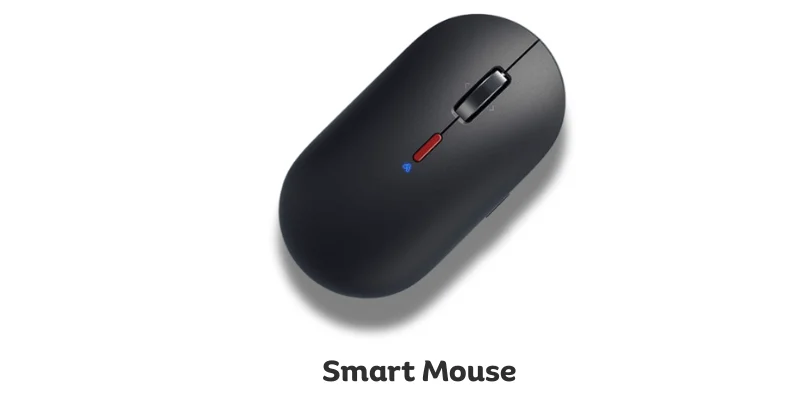
Presentation Mouse
A presentation mouse comes with slide controls and a built-in laser pointer. It allows you to navigate through slides from a distance. This type of computer mouse is ideal for teachers, speakers, and professionals who give regular presentations.
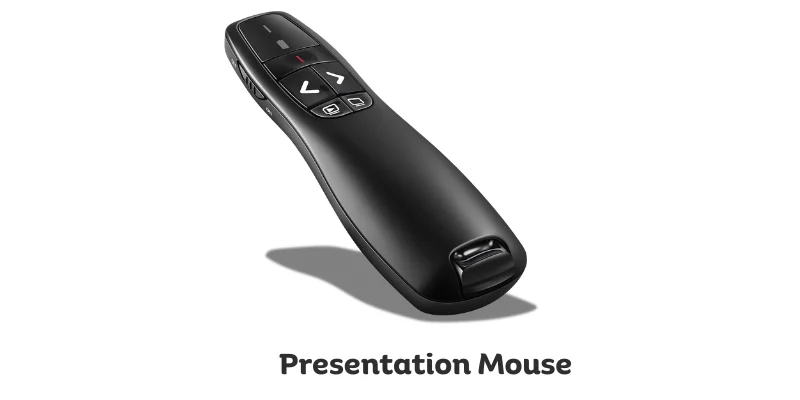
Gaming Mouse
A gaming mouse has a high DPI, fast response time, and extra buttons for custom controls. It’s built for speed and precision during gameplay. Many gamers use this type of mouse to get better control in fast-paced games.
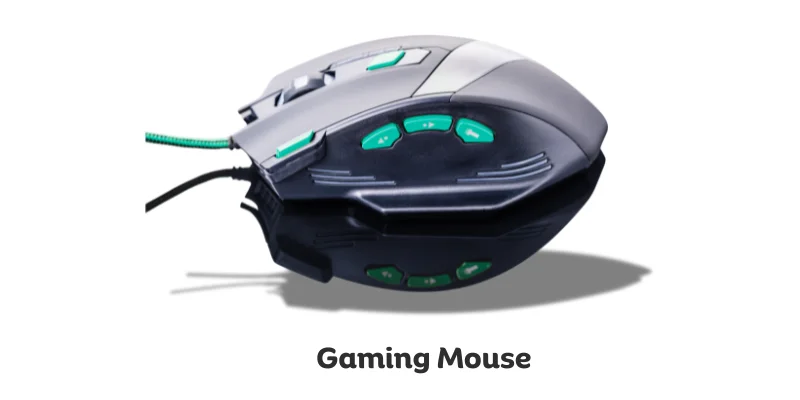
Ergonomic Mouse
An ergonomic mouse is shaped to fit your hand comfortably. It helps reduce wrist pain during long computer sessions. This mouse type is a smart choice for office workers or anyone who spends hours clicking.
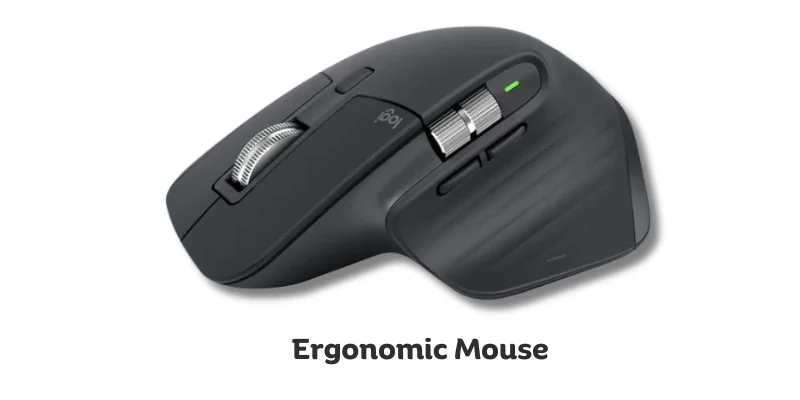
Vertical Mouse
A vertical mouse features an upright design that maintains your hand in a natural position. It puts less pressure on your wrist and arm. Many people with carpal tunnel or joint pain prefer this ergonomic mouse design.
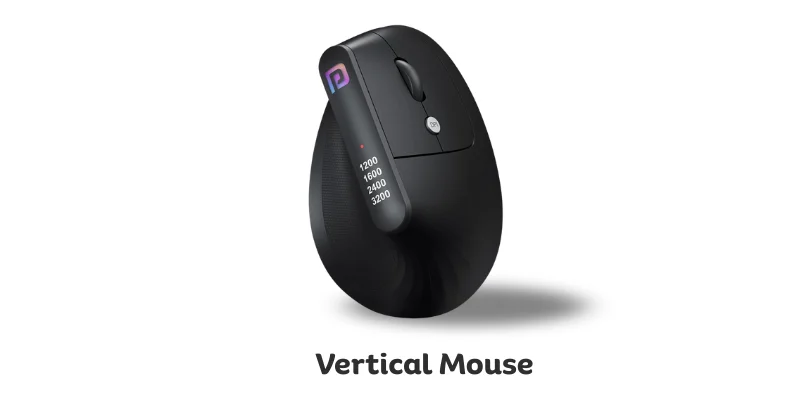
Trackball Mouse
A trackball mouse stays in one spot—you move the cursor by rolling the ball on top. It’s perfect for tight desk spaces or limited movement. This space-saving mouse also helps reduce wrist movement.
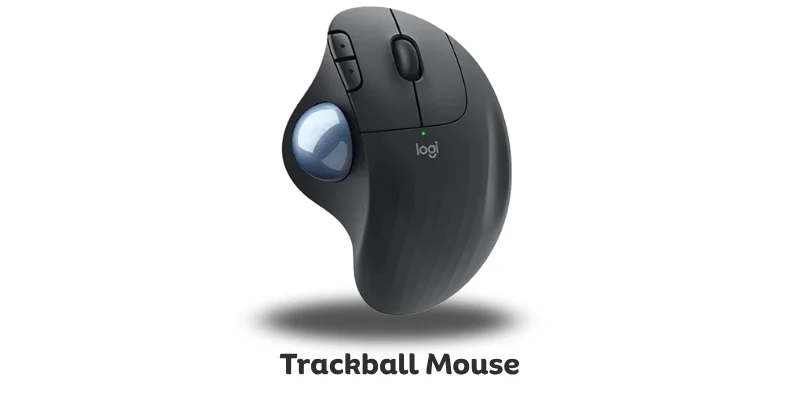
Stylus Mouse
A stylus mouse resembles a pen but functions like a mouse. It’s mainly used for drawing, editing photos, or handwriting on tablets. This digital pen mouse is popular with artists and graphic designers.
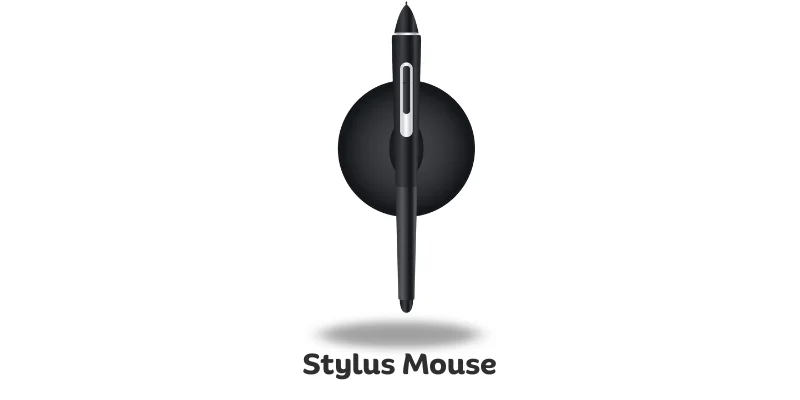
Finger Mouse
A finger mouse straps to your finger and moves with your hand. It’s helpful when you’re giving presentations or standing away from your computer. This portable mouse type offers more freedom than a desk-bound model.
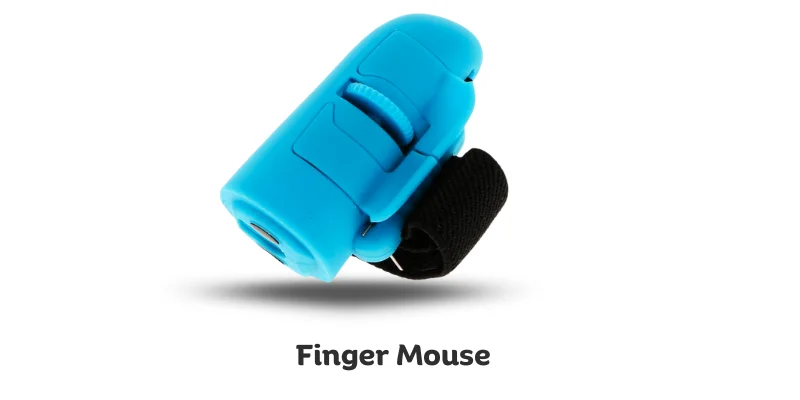
Ring Mouse
A ring mouse is worn like a ring and lets you move the cursor with finger gestures. It connects wirelessly and is useful for remote tasks or media control. This wearable mouse is ideal for users who prefer hands-free control.
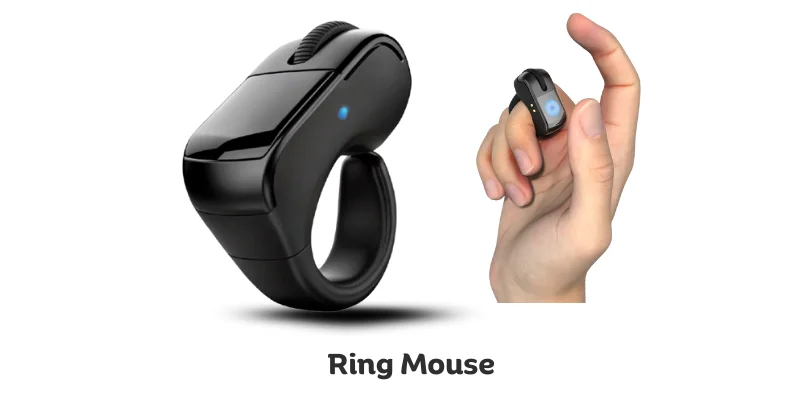
3D Mouse
A 3D mouse lets you move and rotate 3D objects on the screen. It’s widely used in fields like CAD design, animation, and architecture. This specialized mouse type gives precise control in complex design software.
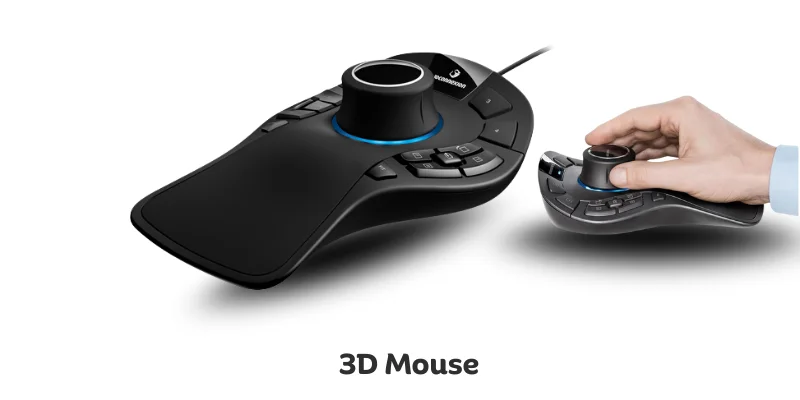
Two-Button Mouse
A two-button mouse has only left and right-click buttons. It’s simple to use and works well for basic tasks, such as browsing or document editing. This basic mouse type is often used in schools and public computers.
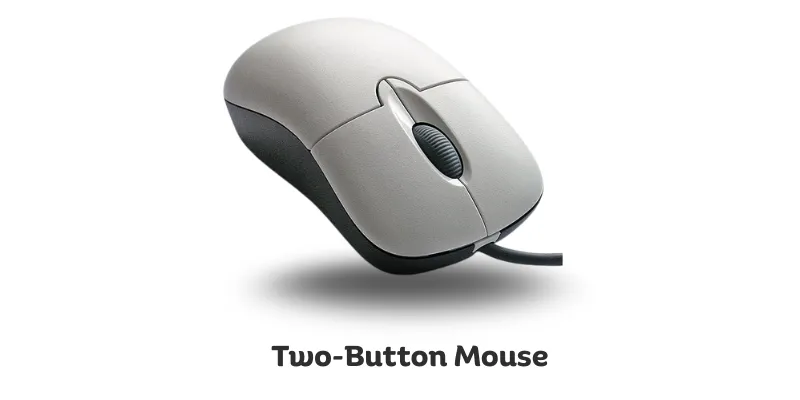
Multi-Button Mouse
A multi-button mouse comes with extra buttons on the sides or top. You can assign shortcuts or macros to these buttons for faster actions. This advanced mouse is great for gamers, editors, or multitaskers.
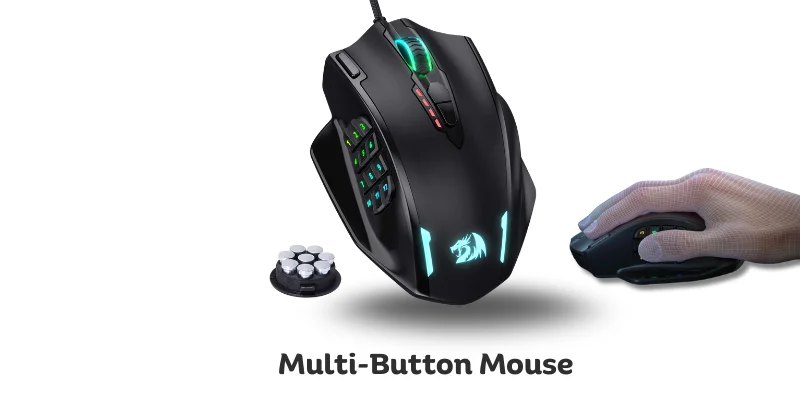
Travel Mouse
A travel mouse is small, light, and easy to pack. It’s usually wireless and fits perfectly in a laptop bag. Many people choose this portable mouse for working on the go.
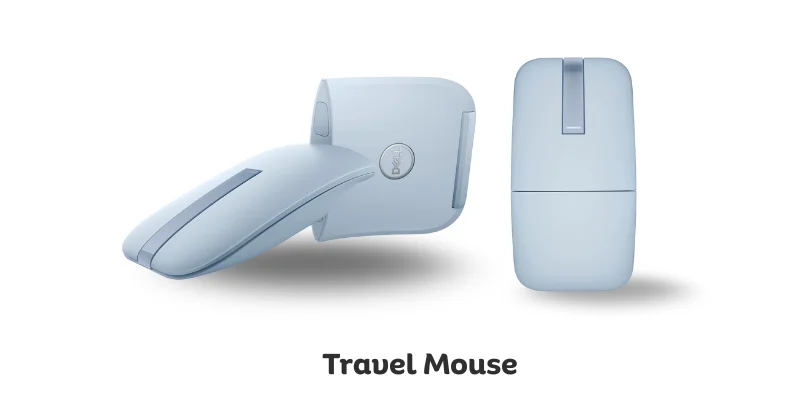
Conclusion
So, guys, I am now going to conclude the topic of various types of computer mice. I suggest picking a mouse based on how often you use it and what you use it for. A simple USB mouse is ideal for beginners, while gamers or designers may require more advanced features.
Found this helpful? Share it with your classmates or tech buddies!
Got questions? Drop them in the comments below.
FAQs About Differnent Types of Computer Mice with Images Names
Below are some of the most frequently asked questions by beginners about mouse types.
The main 7 types of computer mouse are mechanical, optical, laser, wired, wireless, ergonomic, and gaming. Each type is designed for a specific purpose. Some are simple for daily use, while others offer special features.
A gaming mouse is the best for gaming. It has a fast response time, high DPI, and extra buttons for shortcuts. These features help you play better and faster. Many gamers prefer wired models for low lag.
An optical mouse uses LED light, while a laser mouse uses a laser beam. Laser mice work on more surfaces, even shiny ones. Optical mice are suitable for everyday use. Laser mice are better for high-precision tasks.
Yes, if your device has built-in Bluetooth. A Bluetooth mouse connects directly without the need for a USB dongle. This is great for laptops and tablets with fewer ports. It’s also easier to carry when travelling.
An ergonomic mouse is made for comfort. It helps reduce hand and wrist pain. People who use a computer for many hours prefer it. Some designs are vertical or curved to support natural hand posture.
Wired mice are more stable and don’t need batteries. They usually have less lag, which is good for gaming. Wireless mice offer more freedom and a cleaner setup. Choose based on what matters most to you.
A stylus mouse, also known as a smart mouse, is best suited for drawing. These work like a pen and offer better control. Many artists use them with design software. They are great for editing, sketching, and handwriting.
Yes, a trackball mouse remains stationary. You move the cursor by rolling the ball on top of it. It saves space and reduces wrist movement. It’s perfect for tight or shared desk setups.
The most common type of computer mouse is the optical mouse. Optical mice are easy to use, affordable, and found in homes, schools, and offices. They’re perfect for daily computer tasks.

- Be Respectful
- Stay Relevant
- Stay Positive
- True Feedback
- Encourage Discussion
- Avoid Spamming
- No Fake News
- Don't Copy-Paste
- No Personal Attacks

- Be Respectful
- Stay Relevant
- Stay Positive
- True Feedback
- Encourage Discussion
- Avoid Spamming
- No Fake News
- Don't Copy-Paste
- No Personal Attacks


